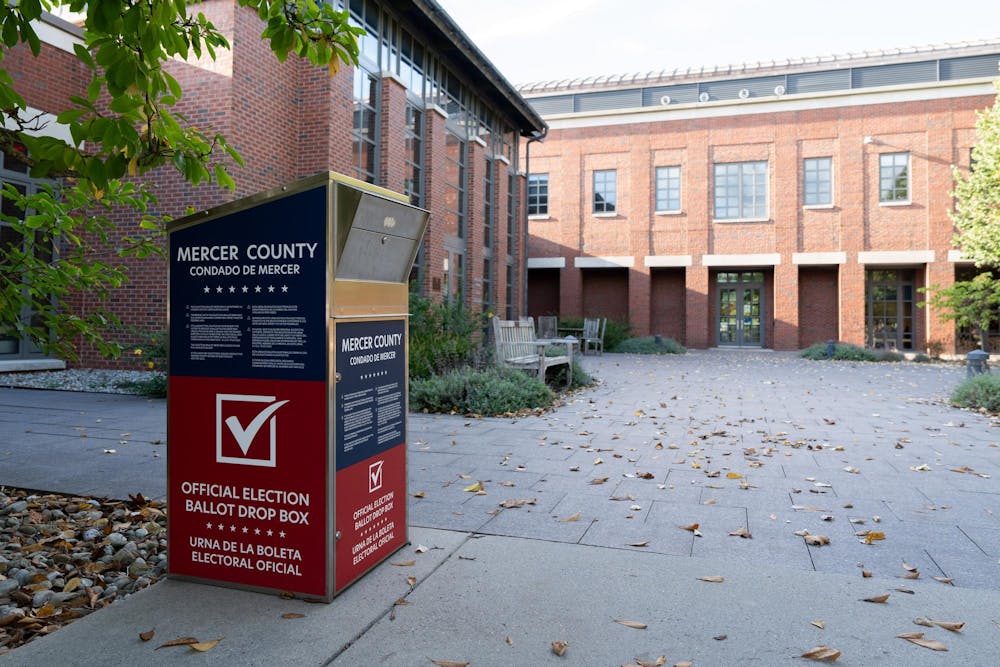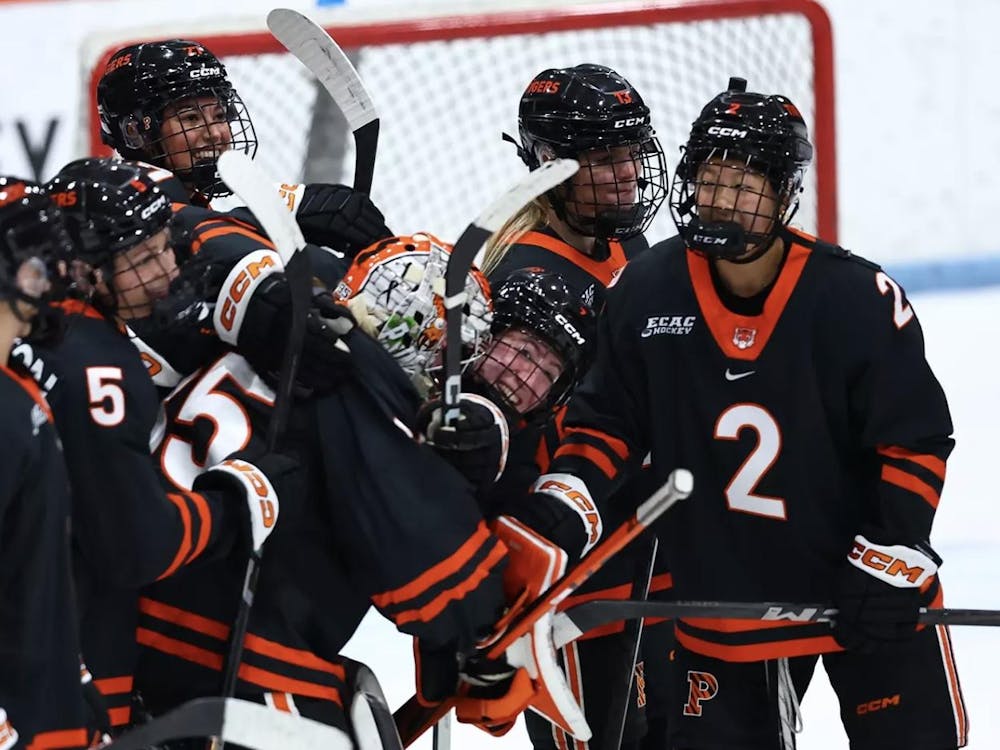With six candidates competing for three spots in the upcoming Princeton Public Schools Board of Education race, The Daily Princetonian asked each candidate a series of questions on LGBTQ+ rights in schools, book bans, and superintendent turnover.
On LGBTQ+ inclusive curriculum
Teaching of LGBTQ+ content in schools has been the subject of nationwide debate. In the past several years, many state-level laws have been passed to restrict the ability of educators to teach on topics like gender and sexuality.
Lisa Potter and Shenwei Zhao favor leaving at least some of these topics to parents.
“We’ve got to leave some of the sexuality and the more sensitive topics like that to parents because it’s so complicated, and the consequences … the parents have to bear the burdens of it,” Potter told the ‘Prince.’ “It’s not something you could cover in a class.”
LGBTQ+ inclusive education came under the spotlight locally in September 2023 when conservative activist group Project Veritas released secretly recorded footage of two staffers of HiTOPS, an New Jersey nonprofit that works with Princeton Middle School. In the edited clip, the staffers discuss incorporating educational materials on LGBTQ+ issues into schools without parental consent. Since then, the topic has led to tensions at BOE meetings and elsewhere in the community.
Zhao in particular argued against the teaching of “intersectionality” in the school curriculum, which was a feature of some HiTOPS content. [He clarified that he was not against the concept of intersectionality and believed it could be taught to older students but did not see a place for it at the middle school level]. Intersectionality is a term coined by legal scholar Kimberlé Crenshaw to describe how aspects of identity like gender, race, and class overlap.
District officials announced at a board meeting over the summer that it would not be collaborating with HiTOPS any further for direct teaching.
Mara Franceschi, the only incumbent in this race, said that the change came about because of a desire to give the district more control over the content.
However, she supports teaching LGBTQ+-related material, saying “When it comes to sex ed, parents have the option of opting their children out. When it comes to teaching the history of the LGBTQ+ community, they do not.”
Chris Santarpio is also in favor of having LGBTQ+ inclusive curriculum, but said that such a curriculum ought to be developed in school and not solely by outside organizations.
“If you’re working with this partner and they’re teaching our students, that partner should be sharing that curriculum with the district, and they should be working together,” he said.

Erica Snyder emphasized that while parents can choose to opt-out of sexual education curricula, “I am going to trust that our educators have the best interests in their hearts for our kids.
Ari Meisel also agreed that the school district should know about the content being taught, though emphasized parental involvement, saying that “Parents need to be part of the conversation, not for approval, but to continue the conversation,” he said.
On trans student rights
The candidates also spoke on the issue of the rights of transgender youth. In New Jersey, the Education department mandates that “A school district shall accept a student’s asserted gender identity; parental consent is not required.”
Potter explicitly said that she believed parental consent should be required. Zhao also expressed that he “[did] not understand why it became a law,” claiming that children are not certain of their gender identity. “The kids will say well, I want to be a little mermaid. I want to be a little Superman, Spiderman … Whatever their imaginations are, or whatever their beliefs are, they’re not mentally developed well enough [so] they [don’t] realize that’s not real, right?”
Recent research suggests that regret over gender transition is rare.
Meisel, Snyder, and Franceschi, on the other hand, voiced their support for the law.
“If that means that a student feels more comfortable identifying as a different gender, and that’s what makes them feel good and safe and right, then I’m all for that,” Meisel said.
While not directly answering the question, Santarpio said, “At the end of the day, we want our students to be kind, we want them to be respectful and understanding of each other.”
On book bans
As debates over book bans and access to diverse literature intensify across the country, the role of school boards in shaping library collections and classroom materials has come under increasing scrutiny. While the Princeton Town Council passed a resolution in April declaring the town a “book sanctuary” — taking a hard stance against book banning — several other school districts in the state have faced calls to ban books.
All candidates expressed opposition to book bans. “I think that is such a slippery slope and represents such a close-mindedness,” Meisel said. “We’re never going to be doing a service to anybody by limiting their ability to handle situations that they’re not used to,” he continued.
Franceschi, who does not “in any way, shape, or form” support restrictions or bans on books, highlighted the importance of trusting librarians to make informed decisions for students. “I fully support them in allowing [librarians] to do their job and trust that they are doing it well,” she said.
“Our library does a terrific job in helping our students select the books,” Santarpio added.
Candidates also stressed the importance of working with schools to select appropriate books. “We should support our educators in selecting the texts that are best going to help our students,” Snyder said. Similarly, Potter expressed a need to “trust that the people we hire in the school will have dialogues with the parents and the community and select the right books for the children.”
For Zhao, who immigrated from China and whose father experienced the Chinese Cultural Revolution, the issue of book bans holds personal significance. “From a country where book banning is a reality, I know what book banning is,” he said.
Zhao does not support bans and believes that schools have the discretion to select certain books over others based on their appropriateness for students. “I think schools should have the freedom to choose the book, but not ban the book,” he said.
On superintendent turnover
In October 2023, Superintendent Carol Kelley abruptly resigned following controversy over her dismissal of former Princeton High School Principal Frank Chmiel ’98. Chmiel had appealed the decision, which was intensely criticized by some parents and students.
The board is currently conducting a search for a permanent superintendent and presented feedback from a series of community forums at a special meeting earlier this month. Interim Superintendent Kathie Foster currently has a contract through the summer of 2025.
Some candidates voiced concerns about the high turnover in recent years and emphasized a need for greater stability. “We obviously need to have somebody who is in line with that long-term vision and who is engaged with the community appropriately, and that’s something that we haven’t had,” Meisel said.
“I think what we need to do first and foremost to hire a competent person,” Potter said. Experience in leading K-12 schools is a key quality Potter seeks in the new superintendent.
Santarpio argued that the superintendent should collaborate with the town and the University post-Kelley.
“I think that's one thing we’re missing, where we become slightly siloed and insular within the PPS community,” he noted.
While Snyder believes that such high turnover “can be detrimental to a school district,” she said that “it would have been more detrimental if Dr. Kelly stayed around longer.” Snyder believes the school district is adopting a more community-centered approach in selecting the new superintendent, hosting forums and distributing online forms to gather public input.
“I think we should be much more positive about this upcoming one, because of the process of how the district is going about doing it so far,” she said.
Franceschi pointed out that the average tenure of a school superintendent in New Jersey — 2.7 years, according to a 2014 study — was relatively short.
“While I’m not going to say that that is helpful and good, I’m also going to point out that it’s not necessarily unusual,” she said.
While most candidates expressed the need to move past Chmiel’s dismissal and focus on student issues, Zhao expressed sympathy towards Chmiel, saying the board “didn’t give him a chance.” Zhao specifically was frustrated over the timing of Chmiel’s dismissal mid-semester and the apparent lack of input from parents in the decision.
Princeton voters will head to the polls to choose three of the six candidates next Tuesday.
Christopher Bao is an assistant News editor and the accessibility director for the ‘Prince.’ He is from Princeton, N.J. and typically covers town politics and life.
Sena Chang is a News contributor for the ‘Prince.’
Editor’s note: This piece was updated to clarify Shenwei Zhao’s position on LGBTQ+ curriculum.
Please send any corrections to corrections[at]dailyprincetonian.com.









